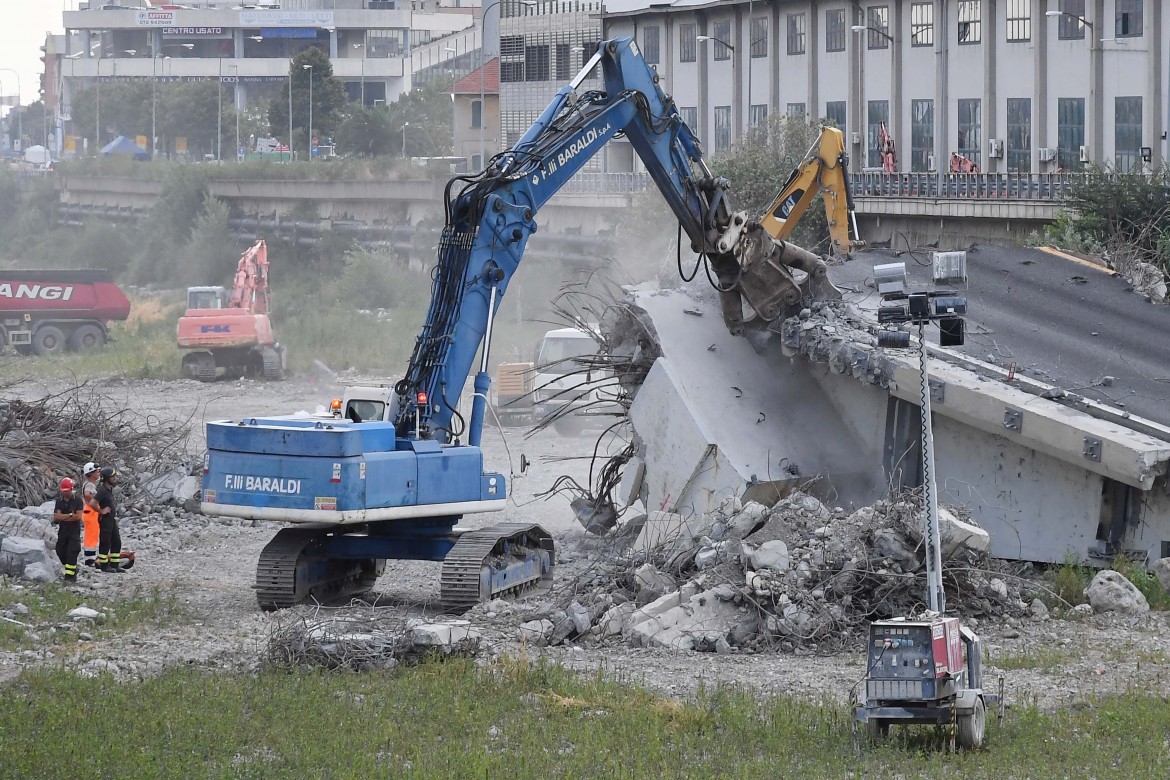Commentary
A plan to rebuild Genoa with peace and quiet
The Ponte Morandi, which collapsed Aug. 14 and killed 43 people, was always a source of noise pollution for those forced to live near it. As Italy prepares to rebuild, a least one elected official is proposing to rebuild it a bit differently.

An eerie silence now reigns in the two residential areas to the south and north of the collapsed bridge. Genoa is by no means a silent city, with its port, its industry, and a traffic flow that is unsustainable. Distant echoes of traffic can still be heard here, coming from the Via Aurelia and the parallel road, but this is nothing compared to the hellish noise that used to blanket the Polcevera valley at all times of day: 24 hours of noise and air pollution daily, 365 days a year, because of the out-of-control traffic.
What can be heard in the neighborhood now is a silence full of sorrow for the tragedy of so many deaths, for the wounded who are still in hospitals, for those who will always bear the marks of having been through catastrophe, and for the families who will now lose their homes, located in buildings which will now be demolished, whose roofs had already been partially destroyed decades ago to make room for the monstrous concrete structure that represented “progress.” These are real people who have had to pay an inhuman price for so many decades, as our editor Norma Rangeri accurately put it. Modernity is cruel to those who cannot avoid being in its path.
This silence, temporary and painful, full of unknowns about the future, seems to be given little regard. Those who worship at the altar of modernity want to rebuild the bridge very quickly, just as it was. This would address a real need for a city that otherwise risks clogging up entirely, but what is surprising is that we have only heard so far from the higher-ups of Autostrade per l’Italia or from various technical experts, in one way or another involved in, or responsible for, this great tragedy. Perhaps their aim is to appropriate for themselves the consent of the local population, which has other priorities these days. Only one of these technical experts has dared to propose that the new bridge should even have a noise barrier—an ineffective option altogether, given the bridge’s height.
Renzo Piano, a senator for life as well as an outstanding architect, has wisely tried to push the boundaries of the discussion further in this direction. Reconstructing the bridge is the right idea, but we should also look toward playing an active part in the transformation of a part of the city, consisting of homes, of (easily overlooked) human activity, of human relationships. Why not try to change the framework of assumptions that has been portrayed up to now as the sole and indisputable one, and add to the balance of considerations for the reconstruction the need to open up a new phase in the life of the city—one that would able to maintain, secure, and even, one might say, sanctify this silence for the daily lives of so many people, older, younger and children?
If we think of a city that would respect the rights of everyone, regardless of their economic ability to be able to choose a home in a less-polluted area, this would require the building not of a new bridge, but rather of a suspended tunnel, in order to prevent the noise from once again taking over the Polcevera valley. Many of these can be found nowadays in our cities, but they are mostly short and discontinuous. Genoa could open up a new phase in their construction. Such a project would cost much more than a normal bridge, because of the extra weight and the costs of ensuring safety. But it could combine, for the very first time, the aim of developing large infrastructure with another much larger endeavor—to build a city that is fit for the people who live there, with a bridge that would maintain the silence, showing respect for the innocent victims of the collapse.
The very little respect for human dignity shown by the two vice-prime ministers on the issue of immigration has shown clearly that new ideas are not going to come from the two political parties currently in power. Such demands could instead emerge from the people themselves, who have been living for decades under unbearable hardships—if, indeed, politics were to begin again to take an interest in their lot.
Originally published at https://ilmanifesto.it/e-se-provassimo-a-ricostruire-il-silenzio-di-genova/ on 2018-09-02
